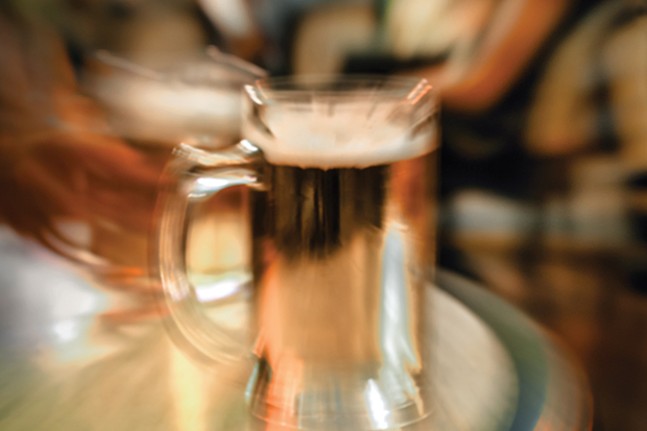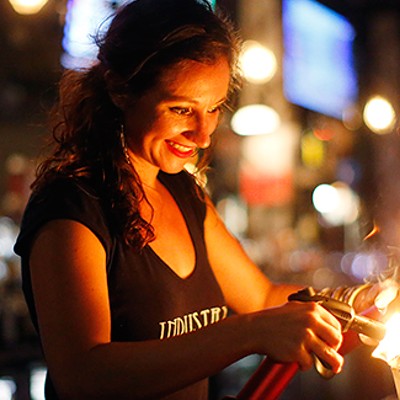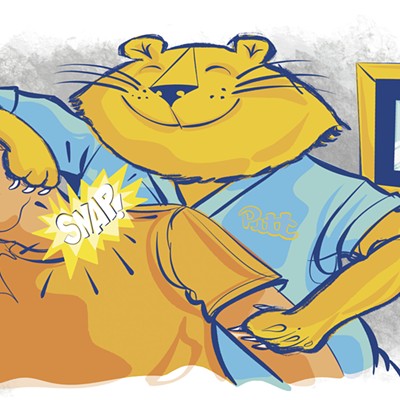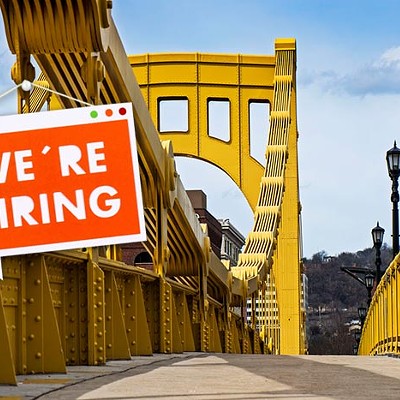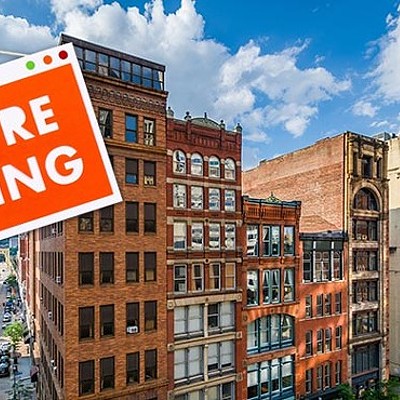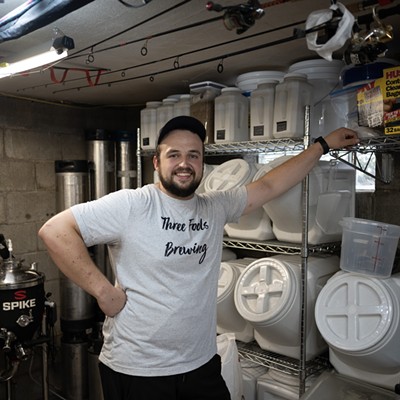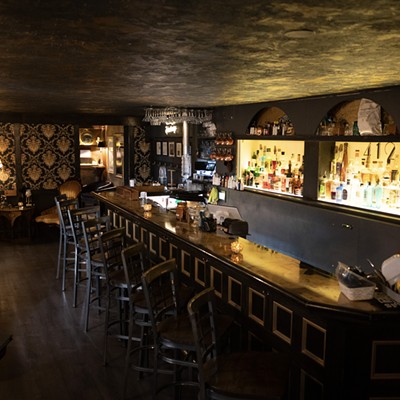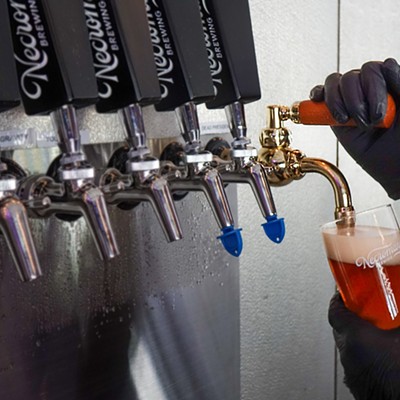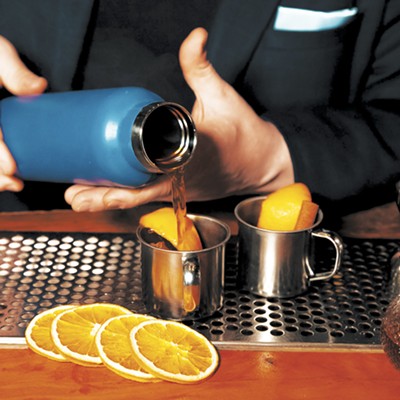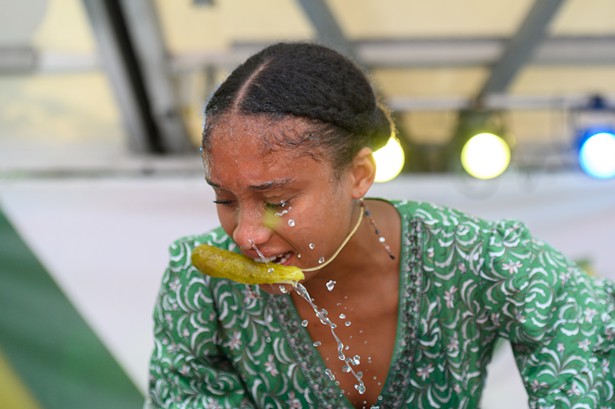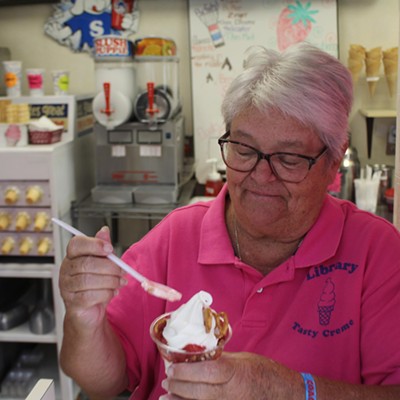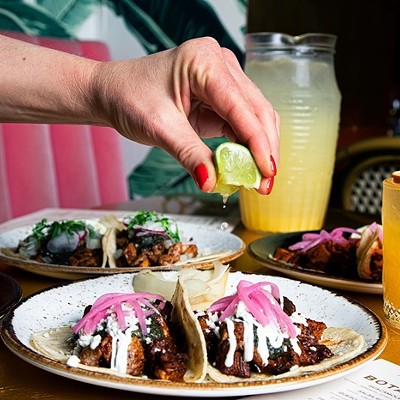The Urban Dictionary definition for "beer goggles" — the phenomenon that alcohol makes the drinker think others are more attractive than when they're sober — offers this example: "When I took her to bed, she looked like Halle Berry. When I woke up, she looked like Keith Richards!" Think of any movie where a beautiful publicist gets broken up with, goes on a bender and wakes up next to a pizza delivery boy.
This is a well-researched phenomenon that can even affect non-humans. A study done by researchers at Penn State found that when fruit flies were exposed to alcohol, the males were less picky and more forward with their potential mates.
Researchers at the University of Pittsburgh have turned to humans, gathering and analyzing data from existing studies to show how alcohol impacts perceived attractiveness. Conducted by psychology professor Michael Sayette and graduate student Molly Bowdring, the study aims to provide a better understanding of why some people drink in excess.
"A lot of the work so far in this field has focused on the impact of alcohol on emotion, and what we're saying is this is another type of effect that alcohol may not be directly impacting emotion but rather impacting our perception of others," says Bowdring.
The study, recently published in the journal Addiction, shows a link between attractiveness perception in heterosexual participants, but Bowdring also notes that there were only six available studies that even included non-heterosexual participants. This, along with research methods, are one of the things she would hope to change in future research. Studies on alcohol and perception more often take place in a lab, as opposed to a bar setting, and use static, expressionless images for rating attractiveness instead of dynamic video.
Variations on this study have been researched before. A study published in Alcohol and Alcoholism showed that participants not only rated people more attractive when drunk, but also rated ugly landscapes to be more beautiful. A study in the British Journal of Psychology, excellently titled "Beauty is in the Eye of the Beer Holder," shows that alcohol causes participants to see themselves as more attractive. Research published in Clinical Psychological Science shows that couples with relationship problems get along better with the use of alcohol.
Part of this feels like "drunken words, sober thoughts”— the idea that what we say when inebriated is what we want to say sober but don't have the courage. Like the true trope of drunk women in public bathrooms excessively complimenting each other. Maybe deep down inside, we're all scared to tell people we actually think they're beautiful!
But this is the idea that Bowdring says is harmful, that rewarding aspects of alcohol can lead to excess and dependence. "It may be that we perceive others as more attractive when we drink, and being around attractive others is rewarding and it's nice to be around beautiful people, but then if that leads us to drink every night or drink to a great extent on a single occasion, then it can become hazardous," says Bowdring.
"Beer goggles" is a funny concept that's almost endearing when you think about it, then bleak when you think about it longer. At its most extreme, "beer goggles" take the route of something like Shallow Hal, wherein Jack Black's character sees heavy women as skinny models, causing confusion and chaos. Alcohol doesn't work like that, magically making everyone around you hot, but its benefits can impede your enjoyment of sobriety. If it can make people and landscapes more beautiful and relationships easier, then what's the problem?
"It's important to understand that many people do drink and gain reward from it, and we can think of these rewards as being kind of double-edged swords," says Bowdring. "It might be that the things we really enjoy when we drink can potentially become reasons that we continue to drink and maybe drink to a problematic degree."

